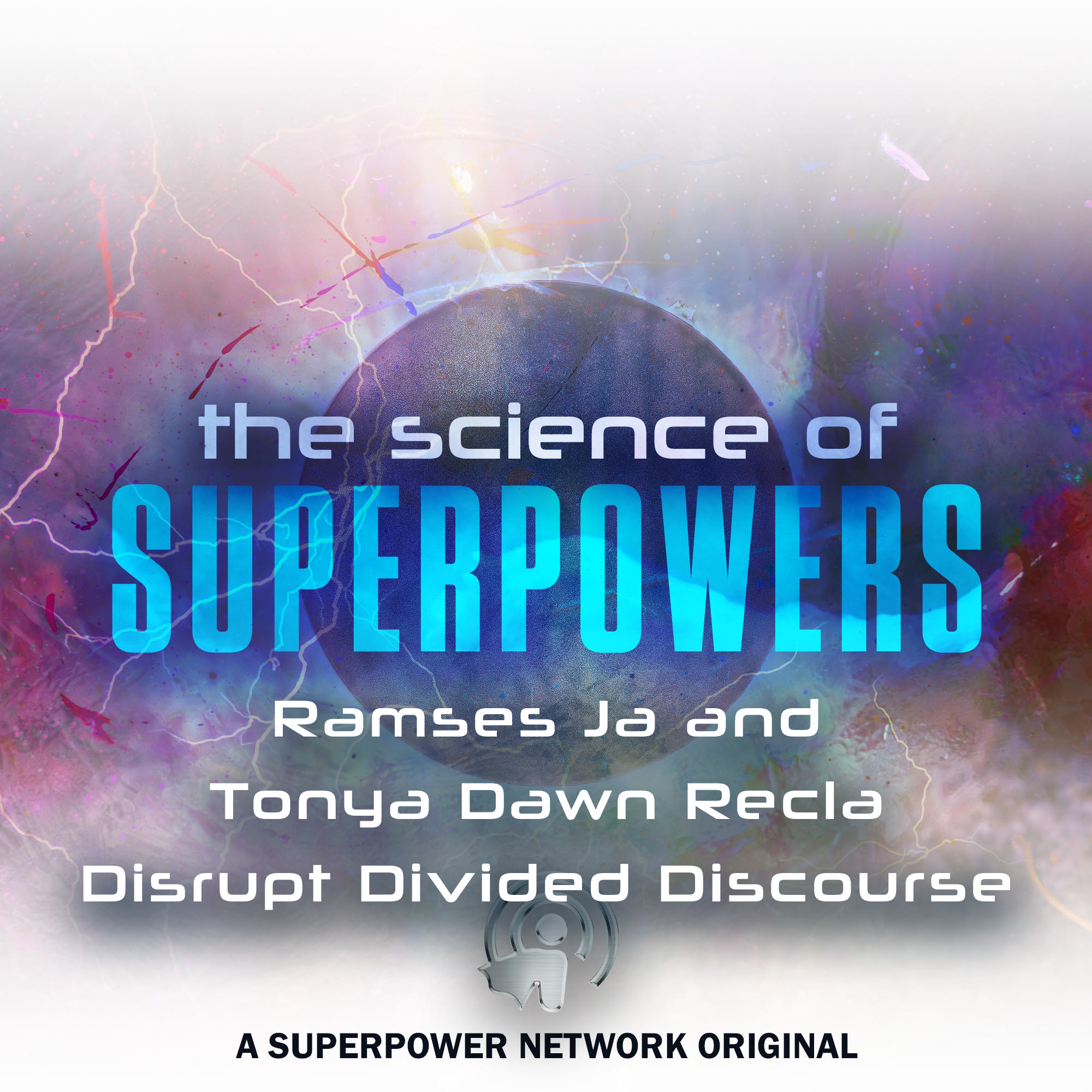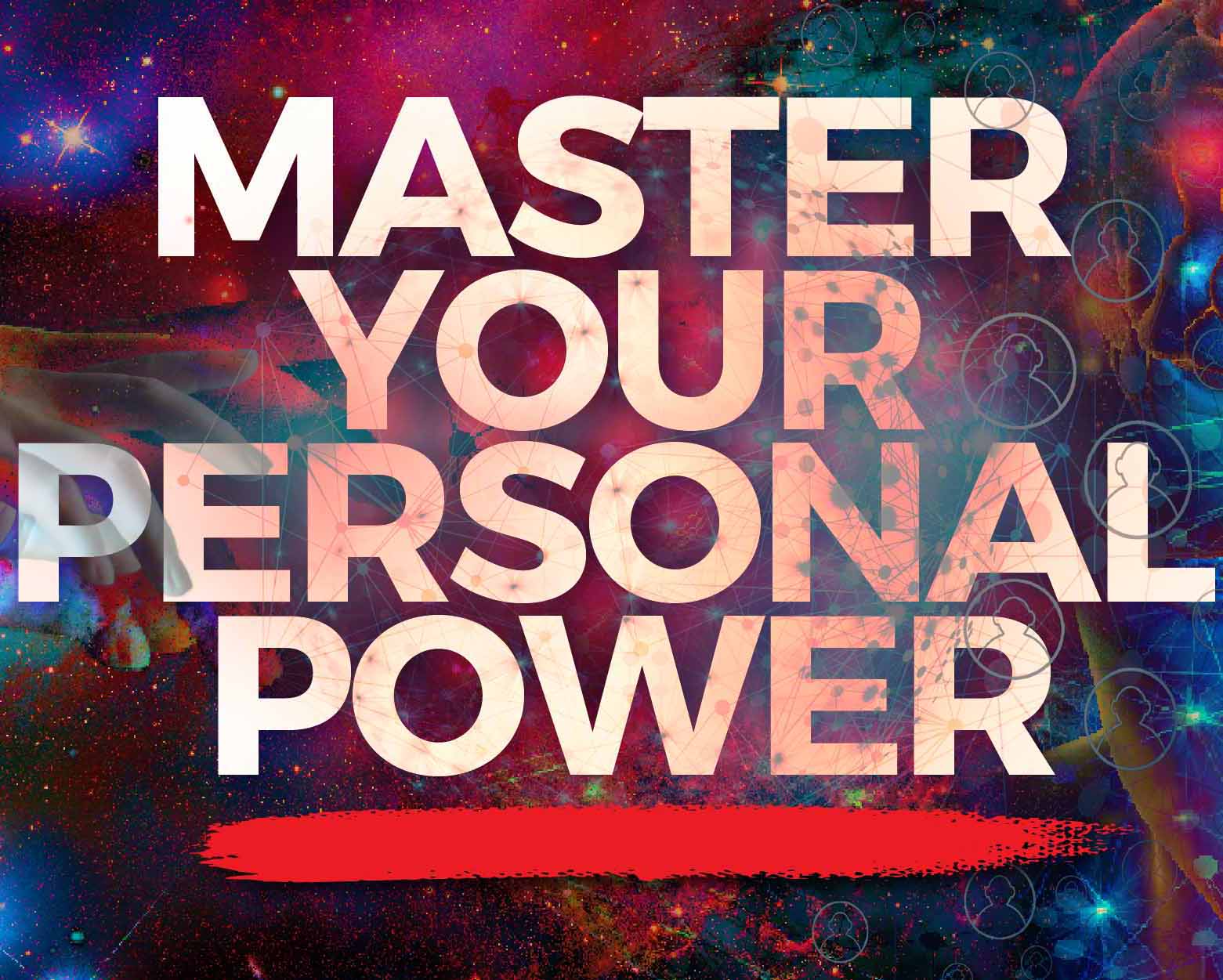
Disrupt Divided Discourse
In a world on fire with social tension and divided discourse, how do we meet in the middle and guide conversations differently? In this episode of The Science of Superpowers, Tonya Dawn Recla and Ramses Ja, co-host of Civic Cipher and activist extraordinaire, disrupt the division. Ramses is well-known for sharing his voice and using his power in ways that matter. His reputation as a popular radio host who models exemplary selfless social service precedes him and lights a path for others to follow. Finding himself at the epicenter of one of the biggest divides of our time, he, and co-host Q Ward, hold the trademark to the highly controversial words: White Lives Matter. Listen and watch now as Tonya and Ramses explore the depths of our divisiveness and discover that all roads lead within. Don’t miss this powerful episode that turns the conversation outside in.
Tonya Dawn Recla
Hello, everybody, welcome back to The Science of Superpowers. So glad you’re here with us today. We have Ramses Ja with us today. Ramses, do you want to say hello?
Ramses Ja
Absolutely. Hello, everyone. Thank you for tuning in. I’m really excited to have this conversation. Hopefully, we all grow a little bit more today.
Tonya Dawn Recla
Absolutely. I think that anytime we come into your presence, it’s kind of impossible not to grow just a little bit. And I’m gonna brag about you for just a minute. So, just hold tight here, folks, I want to know, I want you to know who we’re talking with today.
Tonya Dawn Recla
And what we’re going to be talking about, right, you read the title, we’re talking about disrupting divided discourse, you know my alliterations and my love for language. So, of course, I’m going to get creative with this. And we’re also going to get really deep with this, right? We have some serious tensions happening, social tensions, economic tensions, environmental tensions, like we’re in the tensions, right? Now, there’s a lot of friction, people are in their feelings, right? We all got all kinds of stuff happening. And it’s making conversations between us really challenging, right? It’s like that immediate, like fight or flight, we got to you know, and this is happening on a regular basis. And on social media and the news, you know, everywhere we’re seeing this in our families and our relationships, so what’s really underneath of this? And you know, I’m not gonna let an episode go by where we’re not going to dig deep, and it’s gonna get personal, right? What’s going on inside of each one of us. That is leading to us interacting this way, in public with each other, who we otherwise might be incredible friends with, right? But yet we find ourselves on opposite sides of the conversation. It erupts and the next thing you know, we’re mortal enemies. And it’s really, really unfortunate when we have so many tools available to us to not do that. So we’re talking with Ramses today about how we disrupt this kind of process going on. And it’s like cyclic at this point, because we’ve accepted that this is okay to talk this way. So the first thing is to stop accepting that.
Tonya Dawn Recla
And so in this interview in this episode, we’re really going to talk about how do we take that first step, we’re going to go deep, but we’ll be with you as promised. And we’ll always come back out with you, right? We’re going to bring this out at the end, I promise you. So no matter how you start to feel in the midst of this, because we’re going to dig under some stuff, you’ll be alright. And we’ll walk back through together and it’ll all come together. And you’ll be able to see how to look internally at these matters before projecting externally, which is really important when we want to preserve relationships, and be effective in our work. For you social impact professionals, those of you who really want to encourage change, you got to know how to move around some of these matters, right? How to stand solidly, when to fight, when to hold steady, when to have compassion, right. And that’s a learned process for all of us. And so we’re talking with Ramses, the co host of Civic Cipher, activist extraordinaire. His reputation precedes him. Just do a quick little Google search if you haven’t already. And you’ll see that this man absolutely uses his power for good. And so we’re gonna dive into what that looks like. We’re going to talk about how we can continue to to create change in the world for the betterment of humanity. And so we have our plateful today, folks, so we’re gonna jump right in Ramses, our first question for you, is our pivotal question. What are your superpowers and how do you use them for good?
Ramses Ja
Oh, okay. All right, superpowers? That’s a fantastic question. You know, I know the answer that I want to give. But it feels sort of strange to call it a superpower. But I suppose it is. It’s probably the most profound of all I’ve always kind of referred to as a gift. But a little bit of background. My father was a minister. So I am his son. And I grew up with not only that tradition, but I think on a cellular level, I grew up with a degree of compassion, empathy, the capacity to understand maybe a little bit more patience. And perhaps I just kind of vibrate at a certain frequency. And my father was not the only minister his father was a minister as well. Right? So I come from this tradition of people who feel a very strong spiritual connection, not only to a higher power, whatever it is that you decide that that is, it is the same for all the best, but also to each other. And I think as I’ve grown up and grown into a man, I’ve been able to kind of lean into that, you know, the world is at different points, tried to teach me what being a man is and what being a black man is and what being you know, in this country and, you know, working under capitalism and all these things, right, and you At the end of the day, I had to decide to just follow my heart be what’s what, what’s in my heart be true to myself. And so my superpower would probably be my capacity to articulate my feelings and experiences and my capacity to provide a soft place to land for other people’s experiences and their emotions. And I think that that has manifested itself in the the programming that I create. So if I had to go with one, I think that would be it.
Podcast: Play in new window


